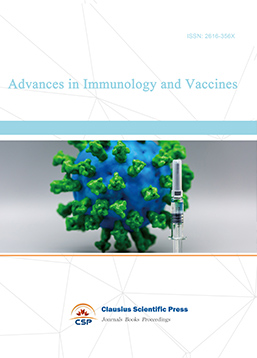Therapeutic Potential of Mesenchymal Stem Cells on Major Depressive Disorder
DOI: 10.23977/medbm.2024.020116 | Downloads: 49 | Views: 2352
Author(s)
Mian Wu 1, Shaohua Hu 1,2
Affiliation(s)
1 School of Medicine, Zhejiang University, Hangzhou, Zhejiang, China
2 Department of Psychiatry, The First Affiliated Hospital, Zhejiang University School of Medicine, Hangzhou, Zhejiang, China; The Key Laboratory of Mental Disorder's Management in Zhejiang Province, Hangzhou, Zhejiang, China
Corresponding Author
Shaohua HuABSTRACT
Major depressive disorder (MDD) has emerged as an escalating global health challenge in recent years, underscoring the urgent need for effective intervention strategies. Regenerative therapy employing stem cells has garnered significant attention as a potential therapeutic avenue for depression. Extensive research has highlighted the promising roles of various stem cell types, including mesenchymal stem cells (MSCs), induced pluripotent stem cells (iPSCs), and circulating stem cells (CSCs), in offering innovative approaches to address depression pathogenesis and facilitate disease modeling. Of particular interest, MSCs have emerged as a frontrunner in depression therapy due to several notable advantages over other stem cell types. Notably, MSCs are readily accessible, ethically unproblematic, and possess low immunogenicity risk, rendering them highly attractive to researchers. Accumulating evidence suggests that MSCs possess the capacity to home in on damaged brain regions, stimulate endogenous neurogenesis and neuroprotection, and modulate immune and inflammatory responses, thus positioning them as a promising candidate for cell-based depression therapy. This review primarily focuses on elucidating the current advancements and potential applications of MSCs in depression treatment. Additionally, we discuss prevailing obstacles and challenges associated with MSC therapy, aiming to provide a comprehensive overview of the landscape of MSC-based interventions for depression.
KEYWORDS
Major Depressive Disorder, Stem cells, Mesenchymal Stem CellsCITE THIS PAPER
Mian Wu, Shaohua Hu, Therapeutic Potential of Mesenchymal Stem Cells on Major Depressive Disorder. MEDS Basic Medicine (2024) Vol. 2: 121-130. DOI: http://dx.doi.org/10.23977/medbm.2024.020116.
REFERENCES
[1] Friedrich, M. J. Depression Is the Leading Cause of Disability Around the World. JAMA 317, 1517 (2017).
[2] Cipriani, A. et al. Comparative Efficacy and Acceptability of 21 Antidepressant Drugs for the Acute Treatment of Adults With Major Depressive Disorder: A Systematic Review and Network Meta-Analysis. Focus Am. Psychiatr. Publ. 16, 420–429 (2018).
[3] Li, Z., Hu, X. & Zhong, J. F. Mesenchymal Stem Cells: Characteristics, Function, and Application. Stem Cells Int. 2019, (2019).
[4] Rice, F. et al. Adolescent and adult differences in major depression symptom profiles. J. Affect. Disord. 243, 175–181 (2019).
[5] Köhler, C. A. et al. Peripheral cytokine and chemokine alterations in depression: a meta-analysis of 82 studies. Acta Psychiatr. Scand. 135, 373–387 (2017).
[6] Miller, A. H., Maletic, V. & Raison, C. L. Inflammation and Its Discontents: The Role of Cytokines in the Pathophysiology of Major Depression. Biol. Psychiatry 65, 732–741 (2009).
[7] Nair, A. K., Sasidharan, A., John, J. P., Mehrotra, S. & Kutty, B. M. Assessing Neurocognition via Gamified Experimental Logic: A Novel Approach to Simultaneous Acquisition of Multiple ERPs. Front. Neurosci. 10, 1 (2016).
[8] Husum, H. et al. Exacerbated loss of cell survival, neuropeptide Y-immunoreactive (IR) cells, and serotonin-IR fiber lengths in the dorsal hippocampus of the aged flinders sensitive line 'depressed' rat: Implications for the pathophysiology of depression? J. Neurosci. Res. 84, 1292–1302 (2006).
[9] Hardy, S. A., Maltman, D. J. & Przyborski, S. A. Mesenchymal stem cells as mediators of neural differentiation. Curr. Stem Cell Res. Ther. 3, 43–52 (2008).
[10] Ho, M. S. H., Mei, S. H. J. & Stewart, D. J. The Immunomodulatory and Therapeutic Effects of Mesenchymal Stromal Cells for Acute Lung Injury and Sepsis. J. Cell. Physiol. 230, 2606–2617 (2015).
[11] Zhang, Y. et al. Human umbilical cord mesenchymal stem cells ameliorate depression by regulating Jmjd3 and microglia polarization in myocardial infarction mice. Psychopharmacology (Berl.) 238, 2973–2984 (2021).
[12] Nazari, S., Pourmand, S. M., Motevaseli, E. & Hassanzadeh, G. Mesenchymal stem cells (MSCs) and MSC-derived exosomes in animal models of central nervous system diseases: Targeting the NLRP3 inflammasome. IUBMB Life 75, 794–810 (2023).
[13] Kin, K. et al. Cell encapsulation enhances antidepressant effect of the mesenchymal stem cells and counteracts depressive-like behavior of treatment-resistant depressed rats. Mol. Psychiatry 25, 1202–1214 (2020).
| Downloads: | 1856 |
|---|---|
| Visits: | 123275 |
Sponsors, Associates, and Links
-
MEDS Clinical Medicine

-
Journal of Neurobiology and Genetics

-
Medical Imaging and Nuclear Medicine

-
Bacterial Genetics and Ecology

-
Transactions on Cancer

-
Journal of Biophysics and Ecology

-
Journal of Animal Science and Veterinary

-
Academic Journal of Biochemistry and Molecular Biology

-
Transactions on Cell and Developmental Biology

-
Rehabilitation Engineering & Assistive Technology

-
Orthopaedics and Sports Medicine

-
Hematology and Stem Cell

-
Journal of Intelligent Informatics and Biomedical Engineering

-
MEDS Stomatology

-
MEDS Public Health and Preventive Medicine

-
MEDS Chinese Medicine

-
Journal of Enzyme Engineering

-
Advances in Industrial Pharmacy and Pharmaceutical Sciences

-
Bacteriology and Microbiology

-
Advances in Physiology and Pathophysiology

-
Journal of Vision and Ophthalmology

-
Frontiers of Obstetrics and Gynecology

-
Digestive Disease and Diabetes

-
Advances in Immunology and Vaccines

-
Nanomedicine and Drug Delivery

-
Cardiology and Vascular System

-
Pediatrics and Child Health

-
Journal of Reproductive Medicine and Contraception

-
Journal of Respiratory and Lung Disease

-
Journal of Bioinformatics and Biomedicine


 Download as PDF
Download as PDF